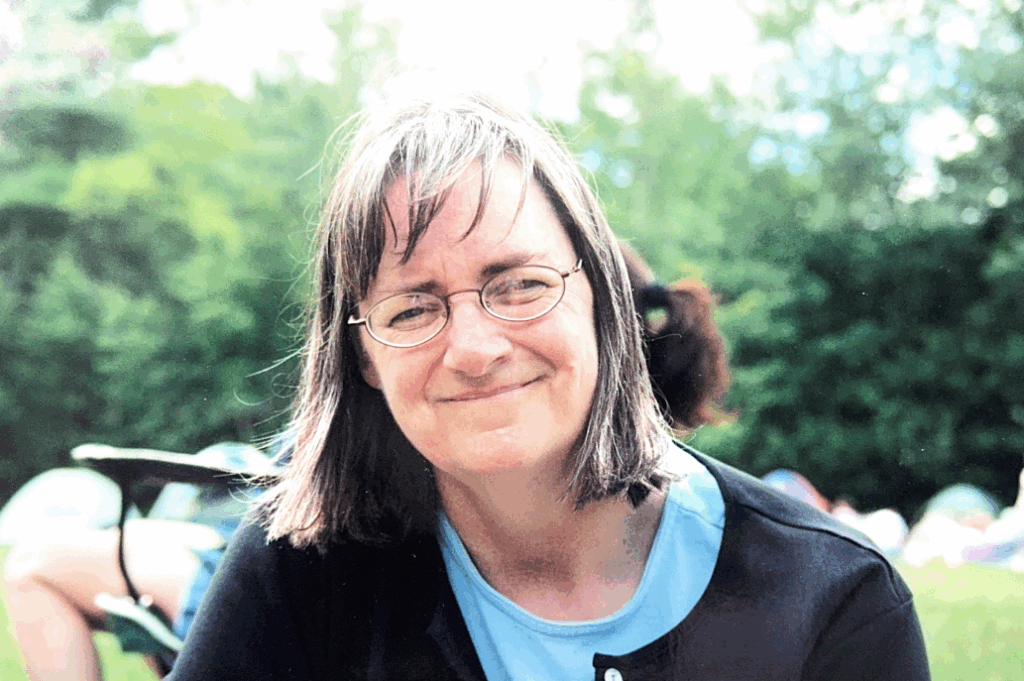Evelyn Small kept copies of everything. For decades, she gathered boxes and boxes of newspaper clippings she found interesting — mostly from The Washington Post, where she worked for 25 years.
“She was an archivist, down to her soul,” said her daughter, Anna Goldman. “In her heart, not a single piece of paper was unimportant.”
Dr. Small was a beloved part of The Post, serving as a personal researcher to Katharine Graham, the paper’s longtime publisher and chief executive, from 1983 until Graham’s death in 2001. She played a central role in crafting “Personal History” (1997), Graham’s Pulitzer Prize-winning memoir, conducting research for the author — who evolved from a self-described “doormat wife” into one of the nation’s most formidable business leaders — and sitting in on more than 250 interviews that Graham conducted with friends, colleagues and dignitaries such as Princess Diana and Warren Buffett.
“She knew as much about my life as I did,” Graham wrote in the book’s acknowledgments. “She took the words I wrote and shaped them, reminding me of important details, tactfully eliminating others, adding things from the research that I’d overlooked. This book could not have happened without Ev.”
Dr. Small, who was so committed to remembering everything, died Oct. 26 of complications from Alzheimer’s disease at a memory-care center in Salt Lake City. She was 77.
“The irony of her losing her memory is not lost on me whatsoever,” said Goldman, who confirmed the death. “I’m doing what I can to keep those memories and to at least have them inside of me.”
Dr. Small, who had a PhD in political science, had a wide-ranging career as a teacher, librarian and speechwriter, working in communications at the Carter White House before joining The Washington Post Co. as a researcher.
She had been at the company for only a few months when, in 1983, she was invited into Graham’s office. “She was thinking of writing a memoir,” Dr. Small recalled in a 2017 essay for The Post, “but wasn’t sure whether she should.”
Graham “insisted that she wasn’t a writer” and “didn’t know where to start,” according to Dr. Small. But she had boxes of archival papers at her home and suggested that Dr. Small might take a look to see if there was material for a book.
“I’m sure I didn’t wait past the next day to hurry over to her house on R Street in Georgetown,” Dr. Small wrote. “I tore up the stairs to the third floor. Behind the first door I opened were boxes stacked to the ceiling. I got the highest one down, pulled apart the cardboard lid and picked up the letter on top, addressed to her mother and postmarked May 10, 1923. It began: ‘We took a trip to the White House and I sat in the president’s chair.’ ”
Dr. Small was astonished. “There’s no question,” she later told Graham. “You have a responsibility to write your memoir.”
For more than a decade, Dr. Small remained at Graham’s side as interviews were conducted and transcribed, and as the book took shape with guidance from editor Robert Gottlieb.
Upon its release, New York Times book critic Christopher Lehmann-Haupt praisedGraham’s “singular perspective” on historical events, including The Post’s coverage of the Watergate scandal, and her candor in recounting her personal life, including her marriage to Post publisher Philip L. Graham. His death, by suicide in 1963, led Katharine Graham to take over the paper.
“There’s a Pulitzer Prize winner every year, but you cannot imagine what it meant to a lifelong newspaper publisher to win a Pulitzer Prize,” said Katharine’s son Donald E. Graham, who succeeded her as publisher. He added, “This book was a huge success entirely attributable to Ev.”
“My mom took her work extremely seriously,” said Goldman, who was given the middle name Katharine in honor of Dr. Small’s former boss. “She was constantly inspired to just keep working. She worked countless hours, and it wasn’t necessarily because Mrs. Graham demanded it. It was because my mom wanted to do that for Mrs. Graham, for the work, for the paper.”
After Graham’s death, Dr. Small served as a contributing editor in The Post’s Book World section, working closely with book critic Ron Charles.
“She was an absolute, indefatigable advocate for readers,” Charles said. “She insisted on absolute accuracy and clarity, which could sometimes drive us crazy, but I had tremendous respect for.”
In a tribute for his Book Club newsletter, Charles recalled that years ago, “when I dared suggest that no one would know if we didn’t bother to correct a tiny punctuation error, she looked over her reading glasses and told me firmly, ‘I’ll know.’ We bothered.”
Evelyn Jean Small was born in Chillicothe, Ohio, on March 17, 1948, and grew up in Greenville, near the state’s western border. Her father served in the military, and her mother was a homemaker.
Dr. Small studied political science and English at Miami University in Ohio, graduating in 1970. She received a master’s degree and doctorate in political science from Ohio State University and taught at the University of South Dakota before moving to the Washington area, where she received a master’s in library science from Catholic University and worked in congressional communications for the Carter administration.
In 1982, she married Eric Goldman. In addition to her husband and daughter, survivors include a son, Will Goldman; and two brothers.
After working with Graham on “Personal History,” Dr. Small continued helping authors write and research their books, collaborating with Post journalist Sally Quinn, among others. She continued working until she was diagnosed with Alzheimer’s in 2021, her daughter said.
“She was never going to stop working until she didn’t realize that she had stopped working,” said Goldman. “And that’s what happened.”
The post Evelyn Small, who helped Katharine Graham write her memoir, dies at 77 appeared first on Washington Post.




